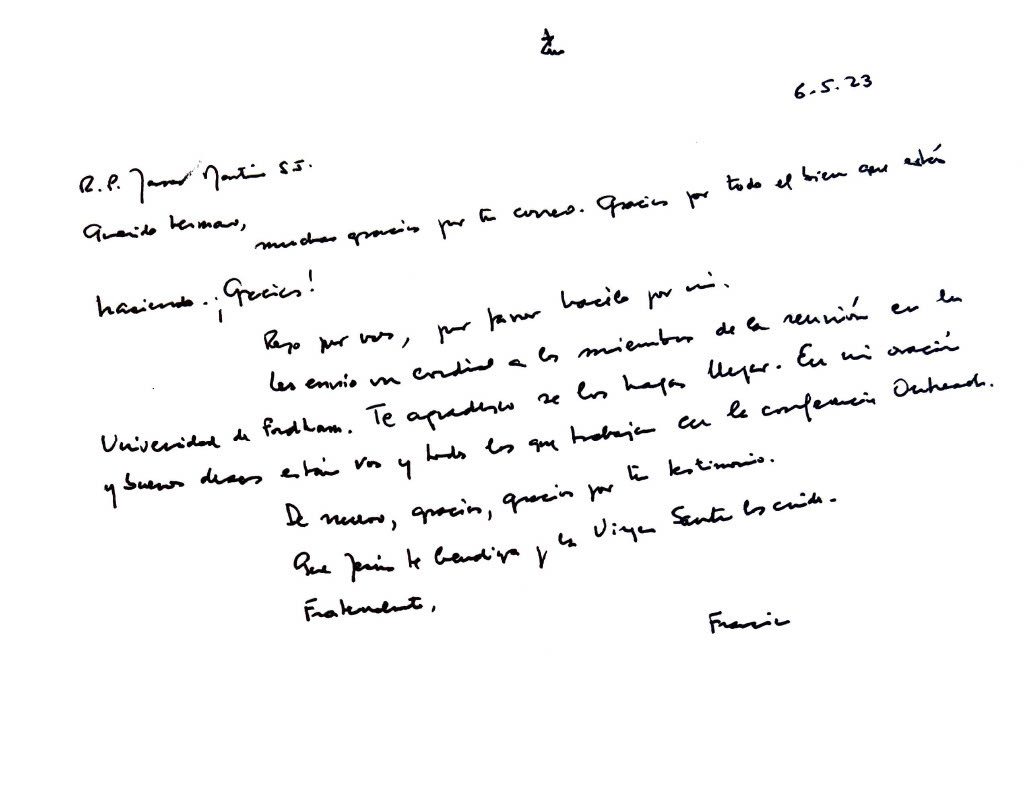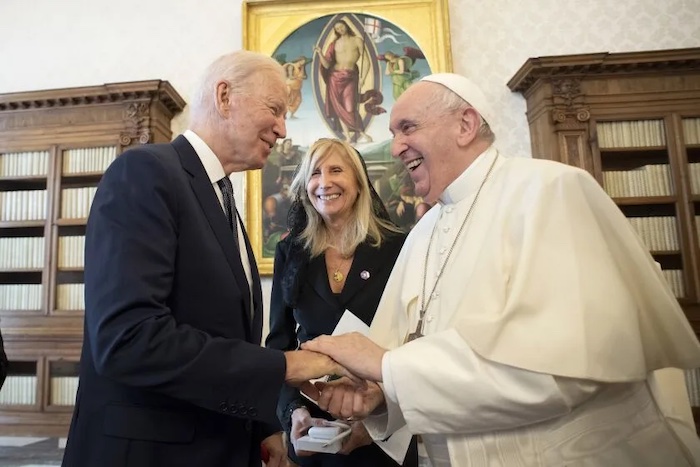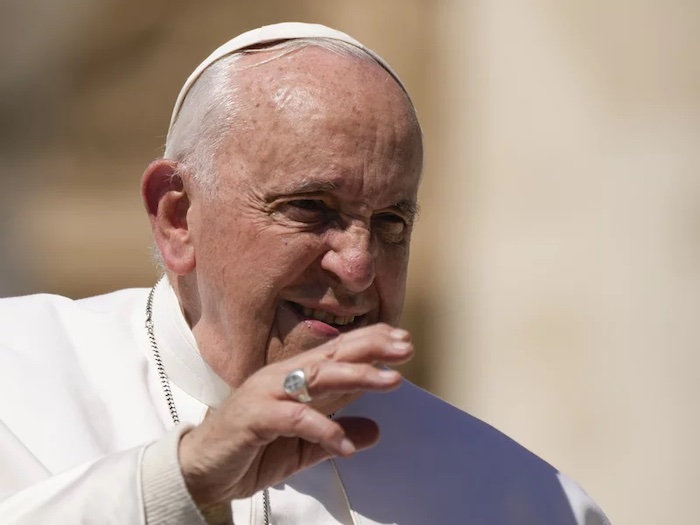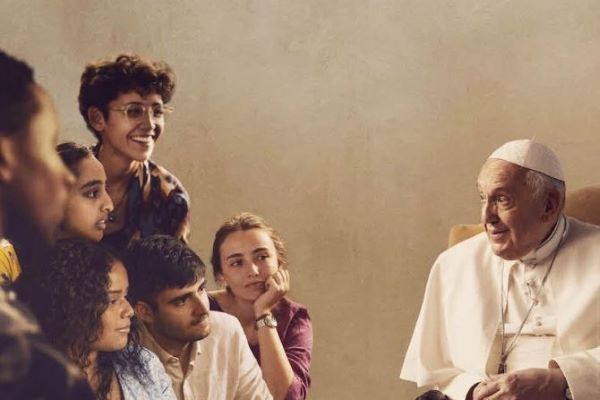
In a letter dated May 6, 2023, Pope Francis has sent his greetings to attendees at the Outreach LGBTQ Catholic Ministry Conference, to be held at Fordham University, in New York City, from June 16 to 18. The handwritten letter, sent to James Martin, S.J., the editor of Outreach, thanks him for “all the good you are doing,” and promises his “prayers and good wishes” to all the participants of the conference.
“I send my best regards to the members of the meeting at Fordham University,” wrote the Holy Father. “Thank you for delivering it to them. In my prayers and good wishes are you and all who are working at the Outreach Conference.”
This is the third letter that Pope Francis has sent in relation to an Outreach conference. In June 2021, on the eve of an online conference, he wrote a letter thanking Father Martin for his “pastoral zeal,” for imitating the “style of God” and to commend him for caring for “your faithful, your parishioners.” In 2022, after receiving a copy of the program for the second conference, he wrote to Father Martin asking him to continue working “in the culture of encounter, which shortens the distances and enriches us with differences.”
Last November, Pope Francis met with Father Martin for the second time in a private audience at the Apostolic Palace, where the two discussed ministry to LGBTQ Catholics.
“In my prayers and good wishes are you and all who are working at the Outreach Conference.”
“I’m grateful for the Holy Father’s warm letter, which is a wonderful blessing for everyone joining us this weekend at the conference,” said Father Martin. “And it’s a special grace for LGBTQ Catholics to know that the pope is praying for them.”
This year’s Outreach conference brings together some 250 LGBTQ Catholics, those who minister with them, and their family and friends, to build community, share best practices and worship together. Participants include theologians, writers, pastoral associates, clergy, members of religious orders, and lay women and men from around the world.
Keynote speakers this year are Tania Tetlow, the president of Fordham University; Juan Carlos Cruz, a member of the Vatican’s Pontifical Commission for the Protection of Minors; and Marianne Duddy-Burke, the executive director of DignityUSA. The closing Mass on Sunday will be celebrated by Archbishop John C. Wester of Santa Fe, N.M.
A full list of the panels and panelists can be found here.
In another letter to conference attendees, Cardinal Timothy Dolan, the archbishop of New York, welcomed the participants to his archdiocese and, echoing the Holy Father, wrote, “It is the sacred duty of the Church and Her ministers to reach out to those on the periphery and draw them to a closer relationship with Jesus Christ and His Church. Your vital and important ministry is a valuable and necessary contribution to that effort.”
Other letters of welcome to be published in the conference program include those from the Very Rev. Joseph O’Keefe, S.J., the Provincial Superior of the USA East Province of the Society of Jesus, and President Tetlow.
Pope Francis’s letter to Father Martin

R.P. James Martin, SJ
Querido hermano,
Muchas gracias por tu correo. Gracias por todo el bien que estás haciendo. ¡Gracias!
Rezo por vos, por favor hacélo por mi.
Les envio un cordial saludo a los miembros de la reunión en la Universidad de Fordham. Te agradezco se los haga llegar. En mi oración y buenos deseos están vos y todos los que trabajan en la Conferencia Outreach.
De nuevo, gracias, gracias por tu testimonio.
Que Jesús te bendiga y la Virgen Santa los cuide.
Fraternamente,
Francisco
English translation
5/6/23
R.P. James Martin, SJ
Dear brother,
Thank you very much for your email. Thank you for all the good you are doing. Thank you!
I pray for you, please do so for me.
I send my best regards to the members of the meeting at Fordham University. Thank you for delivering it to them. In my prayers and good wishes are you and all who are working at the Outreach Conference.
Again, thank you, thank you for your witness.
May Jesus bless you and the Holy Virgin take care of you.
Fraternally,
Francisco
Complete Article ↪HERE↩!




